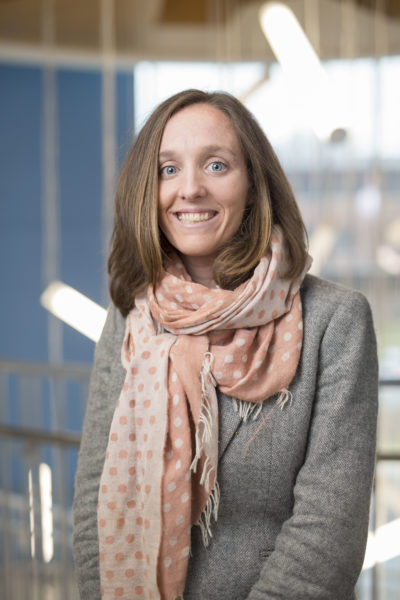Vanderbilt defines the pathways for solid-state battery development

As society moves toward a future of renewable energy around the world, a vision is emerging of safe, energy-dense batteries that will allow electric vehicles to travel longer distances on a single charge, as well as decentralized grids to store massive amounts of energy to power entire communities. The development of solid-state batteries is moving us in that direction, presenting a step change from the lithium-ion (liquid) batteries, which are limited to powering consumer devices like laptops and cellphones.
Kelsey Hatzell, assistant professor of mechanical engineering and chemical and biomolecular engineering, led a survey of developments in the field to present an expert opinion on what is most important for researchers to study, and how to mitigate roadblocks to success in the proliferation of this new, promising technology.
“Through many conversations over the years with my colleagues, these ideas have been percolating,” said Hatzell. “It is an exciting time to be working on solid-state batteries. There is a lot of optimism across the field as we take a second look at materials that were previously discarded and imagine new opportunities for what can be achieved.”
“Scientists cannot transfer all their knowledge of liquid batteries to solid-state battery development,” explains Hatzell. “Instead, progress in the field is going to be largely dictated by the ability to control the new technology’s chemomechanical – chemical and mechanical – properties.” Among the recommendations, the paper encourages the research community to report on critical testing methodology to create global standards.
The report was the cover story of the February 2020 edition of ACE Energy Letters. Hatzell collaborated on this work with researchers from Oak Ridge National Laboratory, University of Washington, and the Center for Materials Research (LaMa) at Justus-Liebig University.
This collaboration was facilitated through Scialog, a partner organization of the Research Corporation for Science Advancement. Hatzell’s ongoing research on solid-state batteries is funded by the National Science Foundation and the Toyota Research Institute of North America.
